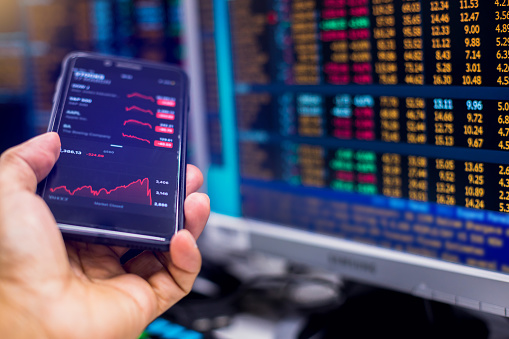Market liquidity refers to the ease at which an asset can be turned into cash with little or no loss of value. More simply put, it is how quickly you can trade an asset for its cash equivalent. It is defined as the ability of a security to be sold quickly without reducing its price on the open market. The more liquid a security, the easier it will be for this transaction to take place, meaning that smaller slippage will occur between the asking price and bid price when you buy or sell. Since market liquidity is directly related to the size of the market, in general, larger and more established markets will have high liquidity.
Many factors can cause less/poor liquidity in the market, but two of the most common are decreased buyers and sellers in the market or increased transaction costs. If people are not willing to buy or sell assets, they cannot participate in transactions, meaning that no one would be able to buy at your asking price or sell at your bid price. Additionally, cost matters when thinking about trading volume. Increasing transaction costs (such as the spread) will decrease market liquidity because people are not willing to buy or sell at these given rates for fear that they will lose money. It is important to note that transaction costs can fluctuate substantially depending on how your country’s digital currency markets are regulated.
There are two common ways to measure market liquidity: turnover ratio and volume. Volume is the number of shares, futures contracts, or currency units traded in a security or an entire market during a specified time period. Turnover ratio is the total sales of all the stocks within a market or portfolio divided by its average basic capital over one year. While these methods can provide helpful information regarding market liquidity, they do not provide any information regarding how easy it will be to make transactions with your assets. Due to this reason, they are most commonly used as benchmarks (high/low) for comparison purposes rather than precise measurements.
A liquid market is good because it gives you the freedom to enter and exit your positions as needed. If a market lacks liquidity, you will have difficulty entering or exiting a position because other investors will not be willing to buy from or sell to you at acceptable prices. This can lead to significant slippage, which will cause you to lose money if you are forced to close your position quickly. For your assets to maintain their value, an adequate amount of liquidity must be present in any given market you choose to transact in. It should also be noted that different types of assets vary widely in liquidity; some markets can be relatively illiquid while others are highly liquid. Additionally, liquidity can change dramatically over a day and even throughout the week.
FX liquidity providers are intermediaries that buy and sell assets to take advantage of price discrepancies. The amount of liquidity in the markets depends on how active these intermediaries are, so high levels of participation can cause prices to remain relatively low regardless of demand. This is because if there are many participants, each investor will have a negligible impact on the overall market.
If liquidity providers are not present, trade volume will die because no one is willing to buy at your prices or sell at your bids. This can also cause transaction costs (such as the spread) to increase significantly because of the market’s lack of available buyers and sellers.
Slippage will become much more likely when you are trying to enter or exit a position in this type of market because the liquidity is low. Therefore, the best liquidity providers need to maintain good levels of participation to keep both transaction costs and volatility low.
As we said earlier, Liquidity providers in Forex profit from trading by buying and selling assets around price discrepancies. The more volatile an asset, the better their potential profits due to increased opportunities for quick trades. However, volatility can also lead to higher levels of slippage, which leads to transaction costs that reduce overall profits made from this strategy. Additionally, Forex liquidity providers can profit from price trends by providing liquidity to both the bullish and bearish side of an asset’s trading range.
Liquidity is an essential characteristic of any market because it affects your entry and exit positions. Because of this, the liquidity of the assets you transact will play a significant role in dictating how profitable or unprofitable they are for you to hold. Therefore, it is advised that any investor choose markets with adequate liquidity to ensure that their assets maintain their value over time. Stocks and currencies have high liquidity because they can be sold and bought quickly and readily without experiencing too much slippage due to transaction fees.
Also Read: How Breach and Attack Simulation Strengthens Your Cybersecurity Defenses
Shashi Teja
Related posts
Hot Topics
What is Kafka Used For: A Complete Guide
What is Kafka used for? If you’ve been diving into the world of distributed systems, microservices, or data streaming, you’ve…
How Do Password Managers Work? The Guide That Finally Makes Sense
Ever wonder how do password managers work and whether they’re actually safe? I get it. The idea of putting all…



